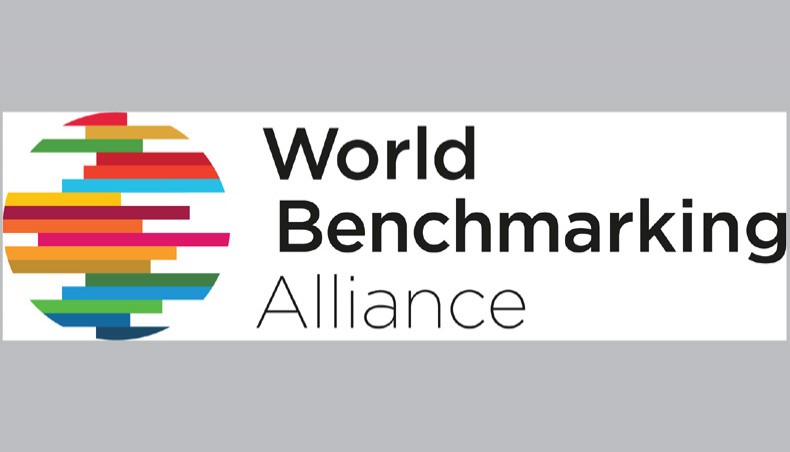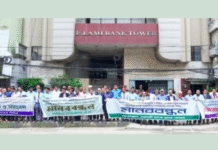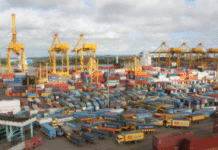 Sixty-two per cent of surveyed global apparel companies, including Walmart, Target, Next, Nike, PVH and Kohl’s, scored less than 20 out of 100 on human rights indicators that indicate the sector as a whole lags behind in ensuring respect for human rights throughout its activities, according to a global report.
Sixty-two per cent of surveyed global apparel companies, including Walmart, Target, Next, Nike, PVH and Kohl’s, scored less than 20 out of 100 on human rights indicators that indicate the sector as a whole lags behind in ensuring respect for human rights throughout its activities, according to a global report.
The World Benchmarking Alliance on Monday published its latest Corporate Human Rights Benchmark and Gender Benchmark, revealing major gaps in supply chain processes and commitments of apparel companies, putting millions of garment workers in the global supply chain at risk.
The WBA assessed 55 of the world’s most influential apparel companies, including Puma, Adidas, Fast Retailing, Kmart and Target Australia, H&M, Marks & Spencer, Gap, Inditex, Kering, SHEIN and VF Corporation, based on their governance and strategy, workplace and supply chain practices.
More than half of the surveyed global fashion brands procure apparel items from Bangladesh.
‘Our 2023 assessment of 55 of the most influential apparel companies shows that while some companies demonstrate noteworthy practices, the sector as a whole lags behind in ensuring respect for human rights throughout its activities,’ the report said.
The WBA is a non-profit organisation that assesses and ranks the world’s most influential companies based on their contribution to the Sustainable Development Goals.
The 62 per cent of apparel companies that scored below 20 out of 100 points – demonstrating that a large group of companies is not keeping up with stakeholder expectations on human rights, the WBA report said.
It said that the apparel sector employs approximately 91 million workers worldwide in predominantly developing countries, of which about 80 per cent are women, but apparel companies failing to recognise and address gender-specific issues in their operations and supply chains are therefore putting millions of women at risk.
The WBA’s research showed that the industry was still failing to fully protect workers’ rights as more than 38 per cent of the companies scored less than 20 out of 100 points on gender equality indicators.
Apparel companies have high expectations for their suppliers, but these are not backed by responsible purchasing practices or supply chain mapping, the report mentioned.
High-performing companies across both benchmarks, including VF Corporation and Inditex, have fundamental corporate due diligence and sector-specific policies for their supply chain to protect workers against violence, harassment, child and forced labour, the report found.
Others, including SHEIN, Prada and Youngor Group, have failed to meet key indicators across human rights and gender equality, it said.
‘Fashion brands are still too slow to respect human rights and gender equality. Our research shows big gaps between what companies claim to do in their supply chains and what actually happens,’ the WBA’s social transformation lead Namit Agarwal said in a statement.
He said that companies were failing to support suppliers and workers putting at risk the apparel sector as a whole.
Not a single company requires its suppliers to offer a minimum of 14 weeks of maternity leave, which is an internationally agreed standard, Namit added.
According to the report, 94 per cent of the companies placed expectations on their suppliers regarding human rights and/or gender equality, but less than a third of these companies took actions that set suppliers up for success, such as avoiding short notice requirements and delayed payments, mapping supply chains or providing targeted support on gender equality.
The survey found that poverty wages were common in global apparel value chains as many garment-producing countries had a legal minimum wage that was well below a living wage.
The report showed that the percentage of apparel companies that were taking steps to achieve a living wage in their supply chains had increased from 23 per cent to 33 per cent between 2018 and 2023.
‘However, the recent protests by garment workers in Bangladesh calling for increased wages are a stark reminder that actions on paying supply chain workers a living wage are still too slow. Many companies are still passive and not transparent on the issue, leaving workers at risk of poverty,’ WBA said.
Similarly, the percentage of companies that are working towards eliminating child labour in their supply chains has risen from 42 per cent to 45 per cent and the percentage to eliminate forced labour, in particular free movement of workers, has risen from 62 per cent to 78 per cent.
The report also mentioned that violation of freedom of association and the right to collective bargaining has been a serious problem across fashion value chains for decades and the situation appears to have worsened since Covid-19.
Garment factories often engage in union-busting – a practice to prevent or disrupt the formation of trade unions or attempts to expand membership – and target union leaders and members for their union affiliation, it said.
The report found that only 47 per cent of companies required their suppliers to respect workers’ right to freedom of association and collective bargaining and prohibit intimidation, retaliation, harassment and violence against trade union members and representatives.
new age









